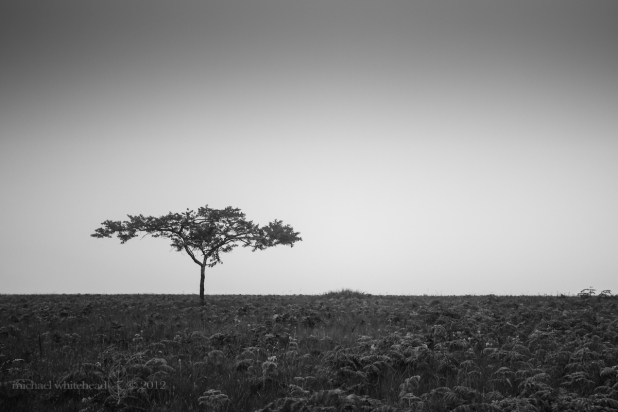If you are seated in an emergency exit row you may be called upon to assist crew members in the unlikely event of an emergency evacuation.
Those who contemplate disaster may enjoy the extra leg room. Thankfully, the probability of any given academic career stalling and rapidly losing altitude is orders of magnitude higher than it happening on your average flight, but my conceit is simply to make the point that preparing for emergency leads to a more comfortable ride. The same can be said for bunker-dwelling, tin-can stockpiling Doomsday Preppers, who are easy to make fun of, except that their backs must be stiffened by a dose of confidence inspired by addressing their perceived existential threat.
In this uncertain and hyper-competitive job market with falling availability of research-focused academic positions, if a postdoc is not preparing to walk away every two or three years they’re a star-performing outlier, or blissfully unaware. It is shocking therefore how often I have encountered postdoc research scientists who simply have never thought about how to get a job outside of their narrow research domain. This should start in their PhD years. In fact, in light of the harsh jobs climate in research, it is unethical for a supervisor or university department to be ignoring the pressure for postgrad students to develop career capital that can serve them and the community outside the narrow field of academic research.
At the end of my first postdoc in 2015, I was beset by anxiety blooming from the combination of scarce opportunities and academic job rejections. I needed to look beyond academia and it took me months to refine strategies to identify jobs that I might be capable of getting an interview for. Eventually I got an interview for a government department, which turned into a job offer. It sounded like an ok job, I didn’t end up taking it, but the fact that I had been offered a decently paying position after successfully marketing my unique set of skills was strong salve to my career anxiety. It gave me some confidence that I could walk away when I needed to.
The chart below shows every ongoing role I’ve applied for since completing my PhD in 2013. As you can see, I have applied for 15 ongoing university academic roles in the past six years and received exactly one interview. Contrast this to the ongoing non-academic government jobs I’ve applied for (five), where I’ve attracted two job offers—a substantially higher strike rate! My research is not easily and directly tied to government priorities, so I’d argue that my single case study supports the assertion that the world outside the ivory pressure cooker is wide and full of opportunities.

I have applied for 24 ongoing jobs since 2013. My two job offers have come from non-academic government roles, for which I have only made five applications. (Scroll below article to see the same visualisation for fixed-term applications)
In light of my experience, this post is for academics who want some pragmatic advice on accessing the diversity of alternative careers.
– Learn to job hunt. You might not have ever used non-academic modes for job-hunting, you might be baffled as to what keywords will find you relevant positions, and one of the big uncertainties is often not knowing what’s available to you. So take the time to learn how to drive the commercial job advertisement search engines, as well as the relevant government and industry outlets. From the Australian point of view, this means Seek.com.au, federal, state, and local government job sites. Spend time using all the keywords you can think of, learn which ones are productive, then set auto-alerts for these (e.g., keyword “plant” was useful to me). Doing this, you will probably learn about interesting jobs you never knew existed.

Actually there are no jobs in “speciation”. Four employers misspelled “specification”.
– Scan for jobs early and often. Start looking early. Earlier than you think is necessary. Repeat your jobs search regularly, at least once a fortnight. Make it a part of your weekly routine, or spend time doing this instead of wasting time online on a demotivated Friday afternoon. It’s really not arduous. This ongoing jobs market research will a) arm you with information about the reality of the jobs market before you need it, and b) identify opportunities that might sound attractive now, perhaps even worth leaving a postdoc for. Don’t miss out on a promising alternative career opportunity because you weren’t paying attention.
– Learn to apply for non-academic jobs.This is a big one, and something you want to practice well before your first “must-get” job. Other industries have their peculiar CV or resume formats, and virtually no industry has CV conventions like academia. Learn to craft a CV targeted to the job/industry. For example, consider adding a “skills and expertise” section highlighting your strengths and transferrable skills. While you might need to completely overhaul your academic CV, that doesn’t mean you have to avoid mentioning all your papers or teaching. Just re-phrase and perhaps contract the detail. For example, I reduced my teaching experience to eight lines on a recent CV because it offers evidence of important skills, but the detail of subjects taught and years of experience don’t matter outside tertiary teaching. Learning to apply for non-academic jobs is learning to market your skills to a non academic audience. A PhD and postdoc in science equips you with a diversity of useful skills, but you have to translate them into the keywords that employers want to hear. Examples of skills most STEM academics can speak to include:
| Communication | Analytical | Management: projects & people | Technical |
| Writing complex and technical subject matter for specialists
Communicating complex and technical concepts to non-specialists Professional oral presentation and seminars Grant writing Tertiary teaching to a diverse student population
|
Research and synthesis of specialist and technical information
Critical thinking Higher order logic and reasoning Executing sound professional judgment from expert knowledge Conducting and interpreting statistical analysis Experimental design Rigorous attention to detail An ability to quickly assimilate new and often complex information |
Managing complex and competing priorities
Supervision and mentorship Communicating with influence, in writing or in person Working effectively in teams, building and maintaining collaborations Working independently with minimal supervision, demonstrating initiative Careful and effective stakeholder engagement |
Programming skills
Laboratory skills Field skills Data visualization GIS |
– Practise applying. Even if you don’t think you’ll take the job, apply anyway. If you’re offered an interview, you might find out information that changes your mind on accepting the job. If you’re offered a job, whether or not you accept, I guarantee this will make you feel better about possible future academic extinction.
– Arm yourself with skills for your desired job. See a job you like, but can’t fulfil the selection criteria? Great. Now you know what you need. Find the time during your postdoc to develop some of these skills. Craft yourself as a candidate for the job you want, ideally by building skills that you can apply to your research now. The counter to this is: Avoid sinking time into skills that are not marketable outside academia. This is a tough line to walk, because some skills that might serve you in research are a hard sell on the outside. For example, learning to master that peculiar and poorly-written R package for detecting hybrids in polyploid organisms, or the latest technique for extracting DNA from sub-fossil sea-urchins might be useful for your research program now, but long-term useless. Can you get a collaborator on that, and instead spend time learning general stats and programming skills to analyse and visualise the results?
– Network, and learn from others. Don’t just sit on the internet reading quit-lit. Tee-up coffee meetings with other scientists who have made the jump. Ask them the obvious and practical questions you think sound dumb. Meet for coffee with people you don’t know who work in the jobs markets you want to explore. Find out: where are the jobs?, how are people getting them?, what are the attractive things about the job you might be overlooking?, what are the negative things you might be overlooking? Networks pay off in unforeseen ways. A 30 minute coffee meeting with someone new is never a wasted 30 minutes.
– Share job information, help each other! Whether or not it’s an academic job, keep your close colleagues and collaborators in the loop. While an isolated job ad can be zero-sum, you operate in an environment of repeated opportunities that is certainly not zero-sum. If you’re applying for a lectureship, don’t let it pass by your postdoc colleagues, share the job ad (but only to the nice, supportive, friendly ones). If you don’t get the position, you’d prefer they got it than a stranger, right? If you see an attractive non-academic job that’s not for you, pass it on to that postdoc colleague who seems like a good fit, even if they are not looking for jobs. A small network of colleagues helping one another catch the opportunities that fall through individual nets.
Overall, the most important and productive thing is to prepare yourself for an exit before you need it, even if you never need it. Taking concrete and practical steps towards building a safety net will give you confidence working under uncertainty. Even if you stay in academia your whole life, never having to break the emergency glass, planning for the event will be invaluable experience to pass on to your future students.

All 16 fixed-term roles and fellowships I have applied for since 2013.




